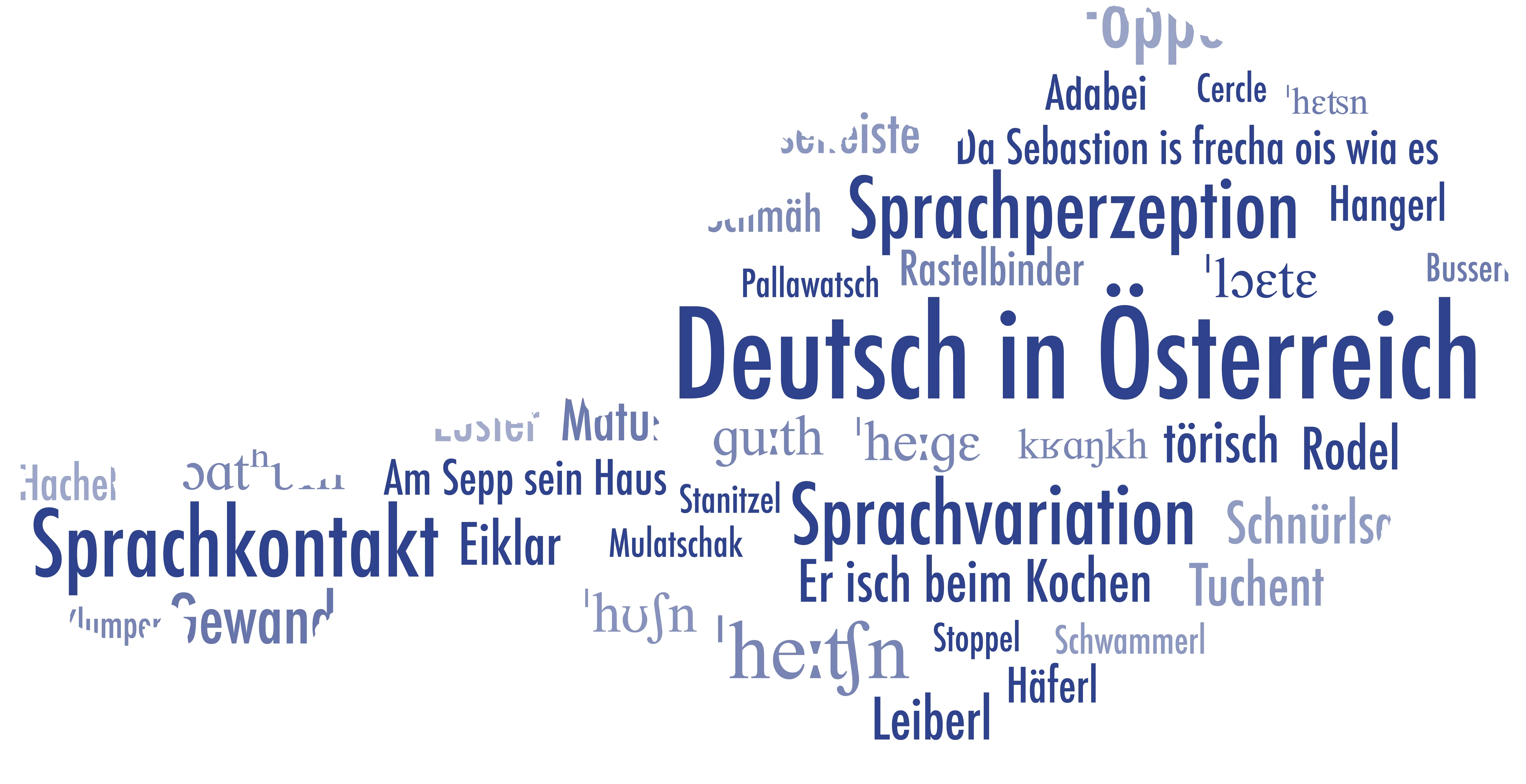
Special Research Programme German in Austria: Variation, Contact, Perception
- Hosting organisations
- Uni Wien - Institut für Germanistik and Uni Salzburg - Fachbereich Germanistik
- Responsible persons
- Univ.-Prof. Dr. Alexandra N. Lenz and Univ.-Prof. Dr. Stephan Elspaß
The Special Research Programme German in Austria is an FWF-funded large scale research project situated at the universities of Vienna, Salzburg and Graz as well as the Austrian Academy of Science. Its nine project parts investigate the variation and change of the German language in Austria as well as its contacts with other languages. Standard German as well as dialects are part of its research scope, as well as all other varieties between those poles, and the meanings ascribed to them by speakers and hearers.
One of the main project goals is an encompassing analysis of German in Austria from a variety of perspectives, ranging from variational linguistics, sociolinguistics, dialectology to research in multilingualism. An additional research aim is the preparation of the acquired data for both the internal use in a collaborative online research platform as well as the external presentation of the data, accessible to both the general public as well as other linguistic researchers.
The whole SFB cooperates on the accumulation of research data and the design of a collaborative online research platform, which the Task Cluster E is responsible for. The task cluster also curates and elaborates on a linguistic annotation system spanning multiple linguistic levels together with the experts from the SFB, and develops linguistic software tools on open source basis (among them a soon to be publicly released collaborative transcription software). A dynamic interactive linguistic atlas is in development as well, which will form the heart of the public research platform. It aims to present the research data and make it accessible in a systematic way to enable interested individuals to form and test their own queries on our data and map them accordingly. To make all of this possible, the SFB is not just concerned with the modelling and annotation of (language) data, but also with the design of user-interfaces.
We want to make our data not just accessible, but also hand everyone the tools necessary to bring their own questions and hypothesis to our data. These efforts are continuously supported by our satellite project “IamDiÖ: Research German in Austria” carrying out citizen science.
